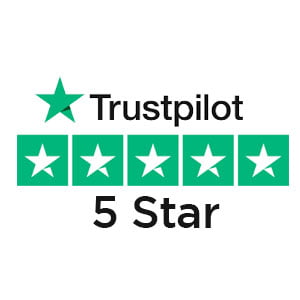
Upselling.
It’s not a dirty word, upselling is a crucial tactic in increasing business turnover. Where many go wrong is upselling the product they want to sell most – rather than the product the customer needs. However selling something the customer needs, or will benefit from, is a far easier and better business approach, than selling snake oil…
What is upselling though?
Upselling is when you have a customer in front of you ready to buy a service and you suggest extras or upgrades they may be interested in, both to benefit their situation, and increase their spend with your business. your played to it more often than you think – those shelves at the checkout filled with sweets, snacks and chewing gum. The “people who bought this, also purchased…“ windows on website checkouts. Even premium fuels at the petrol station – the standard rating for petrol in the UK is 95 octane, and every car sold in the UK has its electronics tuned so that it can run properly on this fuel. A vast majority of UK cars in this country do not need 99RON fuel to run (though a tank occasionally is a good idea to clean the system with better detergents – off topic though), but ANYBODY with a whiff of performance in their car will be tempted to run it on super fuel as it’s promoted as a better option. It’s been upsold.
Choose the RIGHT Upsell.

That is; base what you are selling on the customer or vehicle in front of you. Ask questions so the customer can see your advice is tailored to their situation. For instance: if a customer is on the fence about protection products, ask them what the vehicle usage is, what their own care habits are, and what they want the coating to do. From this, you will be able to effectively upsell from a basic spray sealant to either a high-quality wax, a polymer coating or a ceramic coating and justify your recommendation based on the circumstances they have just told you. Phone shops use this method, asking how many calls you make, how much data you use and what you use the phone for most, usually upselling from a basic plan to a high data plan based on your browsing and data use, over the offered 10,000 free minutes for the half hour of outgoing phone calls you make a month.
Always Offer the Upsell.
… But Don’t Be Pushy.

Customers don’t mind hearing their options – it might be a service they didn’t even know existed, but they don’t like being pushed into something they don’t feel comfortable with, and you can lose a lot of trust and repeat business by ignoring their desires. For example, you could offer to fit wheel protectors with new car protections – pointing out the cost of wheel repairs vs the initial cost of installation. However, the customer might want to think about it and look at other cars online with different colours fitted. Leave the option on the table for as long as you can, but if they don’t take it up this time it’s in their mind for their next visit when they may better recognise the benefits. Don’t be shy to make a note of the offer on their invoice too as it could be a good prompt for an addition to their next valet – after they pick up a wheel scrape, for example.
Make Your Upsell Relevant.
 If a customer just wants a coating applied to, say, a lease car, without correction, fine – if you explain to them the pitfalls to this that’s their choice, however, they might still be receptive to a windscreen coating or local area PPF – if they have mentioned regular motorway miles or the potential for stone chip damage. If you can demonstrate relevance to their situation, rather than just saying “all the cool kids are doing it”, you have a stronger chance of persuading them of the benefits to their situation.
If a customer just wants a coating applied to, say, a lease car, without correction, fine – if you explain to them the pitfalls to this that’s their choice, however, they might still be receptive to a windscreen coating or local area PPF – if they have mentioned regular motorway miles or the potential for stone chip damage. If you can demonstrate relevance to their situation, rather than just saying “all the cool kids are doing it”, you have a stronger chance of persuading them of the benefits to their situation.
Use Urgency.
 …Would usually be the last point – if we agreed with it. Urgency will indeed increase sales as a pressure tactic, but we really don’t recommend it as a long-term business model. Some of the best clients you will have are those that come back over and over because you’ve developed a relationship of trust over time, by all means, make recommendations, and if they are time-sensitive due to the pre-work requirements make that clear, but pinning a customer down to a yes/no decision can leave a bad taste in the mouth. That said, if you have a space to fill in a hurry, or you want to move a product fast, offering it at a discount “to the first 3 responses” is a perfectly acceptable tactic to get customers to move on a purchase.
…Would usually be the last point – if we agreed with it. Urgency will indeed increase sales as a pressure tactic, but we really don’t recommend it as a long-term business model. Some of the best clients you will have are those that come back over and over because you’ve developed a relationship of trust over time, by all means, make recommendations, and if they are time-sensitive due to the pre-work requirements make that clear, but pinning a customer down to a yes/no decision can leave a bad taste in the mouth. That said, if you have a space to fill in a hurry, or you want to move a product fast, offering it at a discount “to the first 3 responses” is a perfectly acceptable tactic to get customers to move on a purchase.
If upselling’s not for you, fine. You can let the customer make their own decisions and tell you what they want, however with a bit of proactivity and a sharing of knowledge, you can build better trust and improve your bottom line at the same time.

